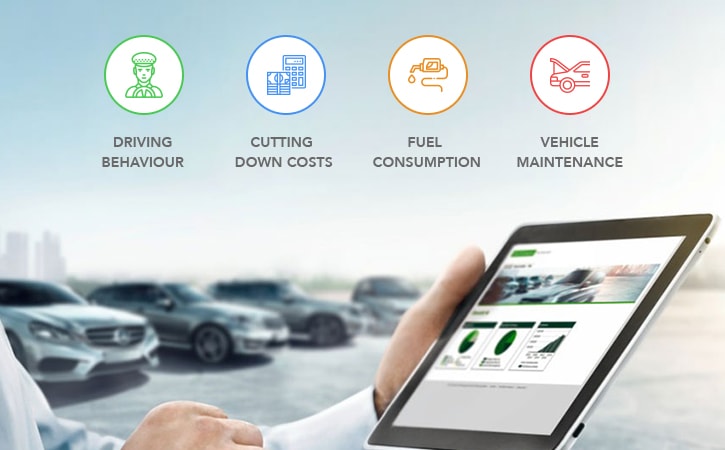Supporting the Well-Being of Long-Haul Drivers
Truck drivers play a vital role in the global economy, ensuring goods reach their destinations. However, the demands of long-haul trucking can be tough on drivers’ health and well-being.
Long hours behind the wheel, combined with irregular sleep and the physical strain of the job, can take a toll. Fortunately, technological advancements and wellness programs offer truck drivers much-needed support.
These range from fatigue-monitoring systems to ergonomic truck designs, all of which aim to keep drivers safe and healthy on the road. However, unforeseen breakdowns can disrupt schedules and cause unnecessary stress.
This is where Fleet Maintenance Solutions come in. By implementing preventative maintenance practices, fleet managers can ensure trucks are in top condition, reducing the likelihood of breakdowns and keeping drivers focused on the road.
Advanced Safety Technologies
Fatigue Monitoring Systems
Long hours lead to driver fatigue, a major safety hazard. New systems use eye-tracking and heart rate monitoring to detect drowsiness and warn drivers to take breaks, preventing accidents.
Collision Avoidance Systems
Collision avoidance systems boost truckers’ safety. These high-tech tools use radar, lasers, and cameras to detect hazards, warn drivers, or even brake automatically.
These systems prevent accidents and keep drivers confident on the road like a second pair of eyes.
Telematics and GPS Tracking
Fleet managers gain real-time insights with telematics and GPS tracking. These systems monitor driver behavior, fuel use, and location, enabling route optimization, improved safety, and faster assistance for drivers.
Vehicle-to-Everything (V2X) Communication
V2X tech, like a car walkie-talkie, connects vehicles and infrastructure for real-time traffic updates, reducing crashes and aiding self-driving cars.
Ergonomic and Health-Focused Truck Designs
Ergonomic Cabin Features
The demands of long-haul trucking can be taxing on drivers’ bodies. Ergonomic design principles are increasingly incorporated into truck cabins to combat fatigue and discomfort.
Adjustable seats, steering wheels, and control panels allow drivers of various body types and preferences to find a comfortable and healthy posture.
This reduces the risk of musculoskeletal issues arising from extended periods in a seated position. Drivers’ positive reception of these ergonomic advancements underscores the importance of comfort in promoting overall safety on the road.
In-Cab Comfort and Wellness Facilities
Long hauls demand driver well-being. Modern cabs offer climate control, noise reduction, and comfy sleep spaces; some even have exercise equipment or wellness programs. These features promote better sleep, reduced stress, and a healthier driver.
Health Monitoring Systems
Onboard health monitors track drivers’ vitals, like heart rate and blood pressure. This real-time data allows for quick interventions if health issues arise. Alerts prompt drivers to rest or seek medical attention, preventing problems from escalating.
Wellness Programs and Support Systems
Mental Health Support
Truck drivers face a hidden challenge: mental health. Long stretches alone, stressful situations, and messed-up sleep schedules can take a toll.
New programs are stepping up to offer mental health support, counseling, and stress management techniques.
The trucking industry can improve driver well-being and keep them happy by providing access to these resources and creating a more supportive environment.
Fitness and Nutrition Programs
Long hauls make maintaining physical health difficult, but new initiatives make it easier. Tailored fitness and nutrition programs encourage truck drivers to exercise regularly and eat healthy.
Truck stops are increasingly offering exercise equipment and healthier food options. Partnerships with healthcare professionals provide personalized fitness plans and dietary advice, helping drivers stay healthy despite demanding schedules.
Education and Training
Ongoing education is crucial for keeping drivers safe and healthy. Training programs focus on defensive driving techniques and handling emergencies, giving drivers the skills they need for any situation on the road.
Workshops also cover healthy living habits, offering practical tips for staying fit and managing stress. New technologies like virtual reality (VR) and simulators are making training even more effective by creating realistic scenarios without the dangers of the real world.
Trucker Revolution: Putting Drivers First on the Long Haul
Long hauls are getting a makeover! Techs like fatigue monitors and collision avoidance systems keep drivers safe. Fleet managers track trucks with GPS, and V2X tech (think car walkie-talkies) is on the horizon for even fewer crashes.
Comfort is key, too. Adjustable cabins and in-cab features promote better sleep and less fatigue. Health monitors keep an eye on drivers, and new programs tackle mental health challenges.
Staying healthy on the road is easier with exercise tips and healthy food options at truck stops. Training revamps focus on safe driving and healthy habits.
By prioritizing driver well-being, the industry creates happier drivers, safer roads, and a more rewarding career path, which is a win-win for everyone.
Follow Techdee for more!
